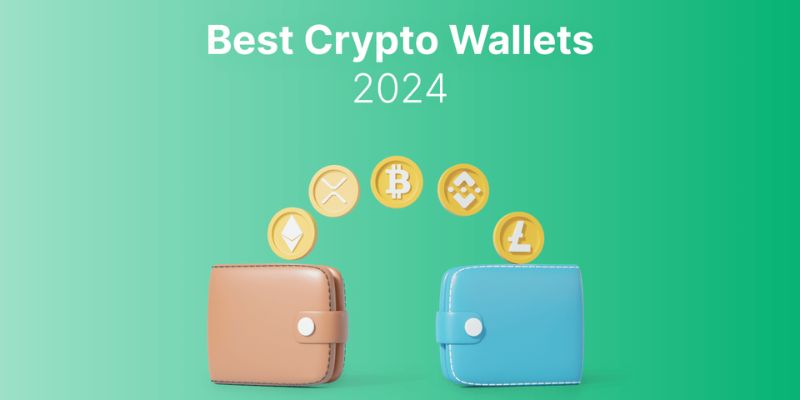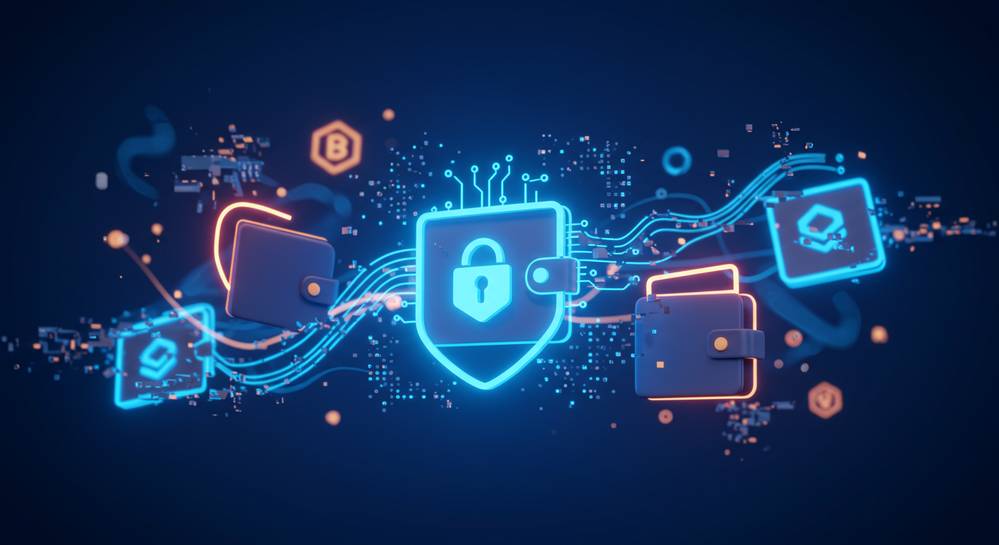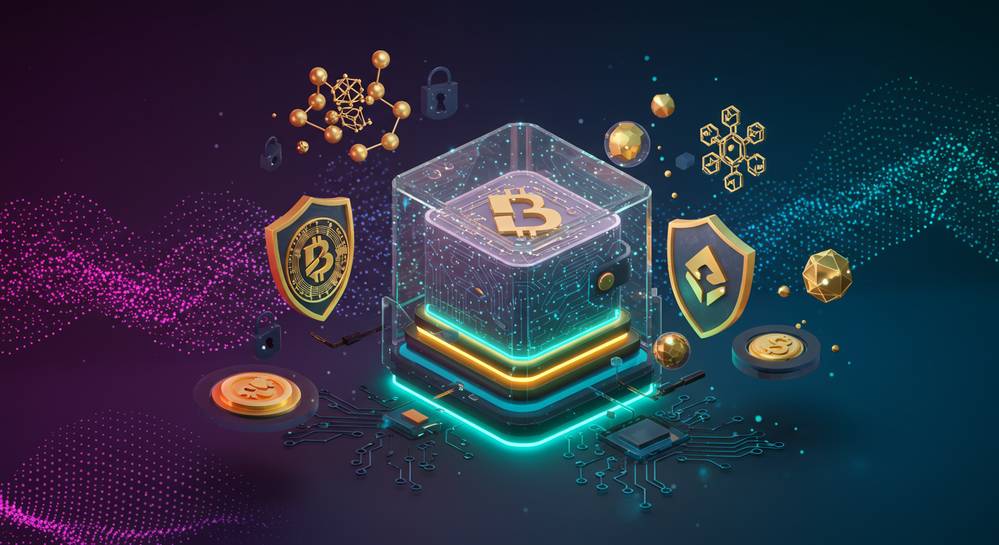As your go-to crypto guide, I’ve sifted through a mountain of options to deliver only the best crypto wallets. Diving into the digital realm of cryptocurrencies means more than just buying and selling; it’s about securing your digital wealth. With the dizzying array of wallets vying for your attention, choosing one that ticks all the boxes for security, convenience, and functionality can feel like finding a needle in a haystack. Trust me to guide you through understanding the differences, evaluating security features, and selecting a wallet that not only serves your current needs but also gears you up for future adventures in cryptocurrency. Let’s break down these digital treasure chests and lock in your assets with confidence!
Understanding Different Types of Crypto Wallets
Hardware vs. Software Wallets: Security and Convenience
When you want to keep your coins safe, you choose between hardware and software wallets. Hardware wallets store keys offline, so hackers can’t reach them. This is called cold storage. Some known brands are Trezor and Ledger. They look like USB drives and connect when you need to make a trade.
Software wallets, on the other hand, are apps or programs. They are always online. This is hot storage. Some popular ones are Exodus and blockchain app wallets on your phone. They’re easy to use and provide quick access to your funds. But, since they are online, they need strong crypto security like 2FA to guard your coins.
Cold storage, like hardware wallets, is best for holding crypto for longer. Why? Since they’re offline, it’s harder for thieves to get to them. Hot storage, such as software wallets, is good for trading and spending. But remember, they need a strong password and 2FA for the best crypto security.
Mobile, Web, and Desktop Wallets: Accessibility for Every User
Different folks need different wallets. That’s for sure. Mobile wallets are like having your crypto in your pocket. You can use them anywhere, which is great. Web wallets run in your internet browser. You don’t have to set up software on your computer or phone. Desktop wallets are apps you put on your PC or Mac.
For those you pay with BTC or ETH often, mobile wallets are handy. They make it easy to pay at stores or send coins fast. But also watch out! If your phone gets stolen, so could your coins.
Web wallets are great for quick logins from any computer. They’re ideal for people who trade coins often. You do not have to download anything. But make sure the web wallet has strong crypto security. Things like a recovery phrase and 2FA can save your day.
Desktop wallets are for folks who like control. You have the keys right there on your computer. They’re good for people not moving coins much. They have strong security, but if your computer gets a virus, your crypto could be at risk.
Now, let’s talk about safety. Keep your recovery phrase in a safe place. It’s a key to your coins if something goes wrong. And for extra peace of mind, add 2FA to your wallet.
In the end, the best crypto wallet for you depends on how you want to use your digital wealth. Just make sure you keep your wallet’s recovery info safe. Set up 2FA too, for security. And think about where you put your coins. Do you need them fast or safe for a long time? Choose your wallet with your needs in mind, and you’ll secure your cryptocurrency just right.

Evaluating Security Protocols in Crypto Wallets
The Importance of Two-Factor Authentication and Recovery Phrases
Secure your cryptocurrency with two big must-haves: 2FA and a recovery phrase. What’s 2FA? It’s a second check to prove it’s really you. Like a one-time code on your phone, besides your password. But why? To stop hackers, even if they get your main password.
But there’s more. You lose your wallet, you lose your money, right? Not with a recovery phrase. It’s a string of words you write down when you set up your wallet. Put it somewhere safe. It’s backup access to your digital cash; if your wallet’s lost or broken.
Now, let’s dive into the details. Two-Factor Authentication, or 2FA, adds another lock on your digital wealth. With it, you must pass two checks to get in. First, your password. Then, the second factor, like a fingerprint or text message to your phone.
The recovery phrase is just as key. You get a unique set of words only you know. Write it down. If your wallet’s gone, type in this phrase, and you’re back in business. No phrase, no access, no money – keep it safe.
Privacy-Focused Wallets: Ensuring Anonymity and Safety
What about keeping your deals private? Enter privacy-focused wallets. They’re like a cloak for your coins. They mix up your details among many users. Trackers get confused; they can’t tell who’s who.
Privacy wallets also have stealth modes. They hide your balance and history from prying eyes. Plus, they use strong codes – cryptology – to keep your address secret. Each time you get cash, your address changes. This makes you hard to track and keeps you safer.
Let’s explain why privacy crypto wallets are great allies. The blockchain is public. Anyone can see your deal history. Privacy wallets scramble this data. They use techniques where even if someone looks, they see nothing useful.
With privacy wallets, you don’t just get a new address per deal. You get layers of protection. Like stealth addresses, ring signatures, and more. These help shield you from being watched or tracked online.
Remember, best crypto wallets marry security with good use. They give you peace, privacy, and power over your own coins. Whether you go for a mobile wallet, hardware wallet, or a web wallet, pick one that gives you both control and safety. Your future self with thank you.

Multi-Currency and Decentralized Wallets
The Advantages of Storing Various Altcoins in One Place
Imagine a toolbox. But this is no ordinary toolbox. It’s one that holds different tools, or in your case, various altcoins. That’s what we have when we discuss multi-currency wallets. They’re some of the best crypto wallets since they provide a one-stop solution for storing different digital assets.
This functionality is important in an ever-growing crypto space. When you’re dealing with multiple coins, it saves time and boosts your trading efficiency. BTC wallets and ETH wallets are popular, but shouldn’t you also store your Ripple, Litecoin, or Cardano in one place? Yep, you should.
But, what makes these wallets special? First off, they give you the power to control your keys. This is the essence of crypto security: your keys, your coins. Secondly, the recovery phrase is another critical feature in these wallets. They help restore your assets in case you lose access to your wallet. And of course, 2FA in crypto wallets adds an extra layer of safety.
Remember though, nothing is perfect and the same applies to digital asset storage. These wallets are often hot storage, meaning they’re connected to the internet most of the time. This might make them vulnerable. That’s where cold storage comes in handy for long-term holding.
The Rise of Decentralization in Wallet Technologies
Now, shall we dive into the world of decentralized wallets? Decentralization is the backbone of blockchain technology, and crypto wallets are no exception to that.
These wallets are disruptive. Why? Because they hand the control over to you. Yes, you heard it right. You’re the boss. This is known as a non-custodial wallet, where only you have access to your private keys. No third-party nonsense. How cool is that?
Decentralized wallets don’t just stop at security. They’re advancing and integrating with blockchain apps. Imagine having a wallet that has an interface for crypto trading, staking, or even interacting with a fun game on the blockchain. You get to do all these while always being in charge of your wealth.
However, despite the perks, necessary precautions are a must. Decentralization means responsibility. The risk of losing your keys means losing your coins. So remember, digital wealth also means digital vigilance.
In conclusion, multi-currency and decentralized wallets are paving a way for a future that combines convenience and control in crypto management. It’s not just about holding your coins, but about the way we handle and use crypto in the bigger picture. Here’s to making strides in the crypto world.

Optimizing Wallet Use for Different Blockchain Activities
Best Wallets for Crypto Trading, Staking, and Mining
When you’re into crypto trading, you want speed and security. Good news: you’ve got options. I recommend looking at software wallets, like Exodus for its neat interface, or hardware wallets like Ledger for that added security layer. Both types let you trade fast — hardware wallets just add a bit of armor.
For staking, security matters, but so does uptime. Mobile wallets provide that. They stay connected, which is just what you need for staking. Consider Trust Wallet or Argent. They’re user-friendly and secure. These let you earn rewards without a hitch.
Mining enthusiasts, hear this: hardware wallets are your best friends. They protect your hard-earned coins like an armored truck protects cash. Look at Trezor or Ledger. They are the gold standard for storing what you mine. No one touches your digital gold but you.
Adopting Cold Storage for Long-Term Asset Security
Now, picture this: a vault for your digital wealth. That’s cold storage. It’s offline and ultra-secure. For long-term holding, paper wallets and hardware wallets are your best bets. Paper wallets may sound old school, but they are simple and practically hack-proof — print your keys, and you’re set. Just don’t spill coffee on them!
Hardware wallets, like Trezor or Ledger, are the kings of cold storage. They’re perfect for the “set it and forget it” crowd. Pop in your digital assets, lock it up, and sleep like a baby knowing your crypto is safe.
Remember, security does trump convenience here. But peace of mind? Priceless. Whether you’re a trader, staker, or miner, choosing the right type of wallet is key to keeping your digital riches safe. Make the right choice and secure your cryptocurrency like a pro.
We’ve covered a lot on crypto wallets, from the types you can use to their security must-haves. We saw that hardware and software wallets offer different perks. You pick between top security or easy access. Then, we dived into mobile, web, and desktop wallets, so you’ve got choices for every need.
Next, we checked out how key security features like two-factor auth and recovery phrases keep your coins safe. Plus, we learned about privacy wallets that hide your info and protect your cash.
We also talked about managing many altcoins all in one spot with multi-currency wallets and saw how new tech is making wallets without control centers more common.
Finally, we looked at which wallets work best for trading, staking, and mining. And for those planning to hold crypto for a long while, we learned why cold storage is key.
In short, choosing the right wallet is huge for your crypto journey. Think about what matters most to you—safety, ease, or having many coins in one place. Your perfect crypto wallet is out there. Happy hunting!
Q&A :
1. What are the best crypto wallets available today?
In a rapidly digitalizing world, storing and managing your digital assets is of utmost importance. The best crypto wallets in today’s market meet a variety of needs. They are highly secure, user-friendly, and support a variety of cryptocurrencies. The top contenders in the list include Trezor, Ledger Nano S, and Exodus.
2. Are the best crypto wallets safe to use?
Definitely, safety is one of the primary attributes of the best crypto wallets. They provide layered security features like two-factor authentication, biometric scanning, private key generation, and secure pin codes. They also use advanced cryptographic techniques for encryption. However, the level of security also depends on the user’s behavior, such as not disclosing sensitive information and keeping software up-to-date.
3. How do the best crypto wallets work?
The best crypto wallets primarily work as personal ledger of transactions. They store public and private keys which you use to send and receive cryptocurrency. When a transaction is made, the wallet uses the private key to sign it, which is evidence that the transaction is coming from the wallet’s owner. The transaction is then transmitted to the network to be included in the blockchain.
4. Can the best crypto wallets be used on multiple devices?
Absolutely, the best crypto wallets can be used on multiple devices. Some crypto wallets called software wallets can be installed on your PC or smartphone, while hardware wallets can be connected to any device with a USB. There are also web-based wallets which can be accessed from any device with an internet connection.
5. Which of the best crypto wallets support the most cryptocurrencies?
The number and type of cryptocurrencies supported can vary between wallets. However, the best crypto wallets generally support a wide array of cryptocurrencies. Wallets like Ledger, Trezor, and Exodus are known for their broad cryptocurrency support, accommodating Bitcoin, Ethereum, Litecoin, and many more.



